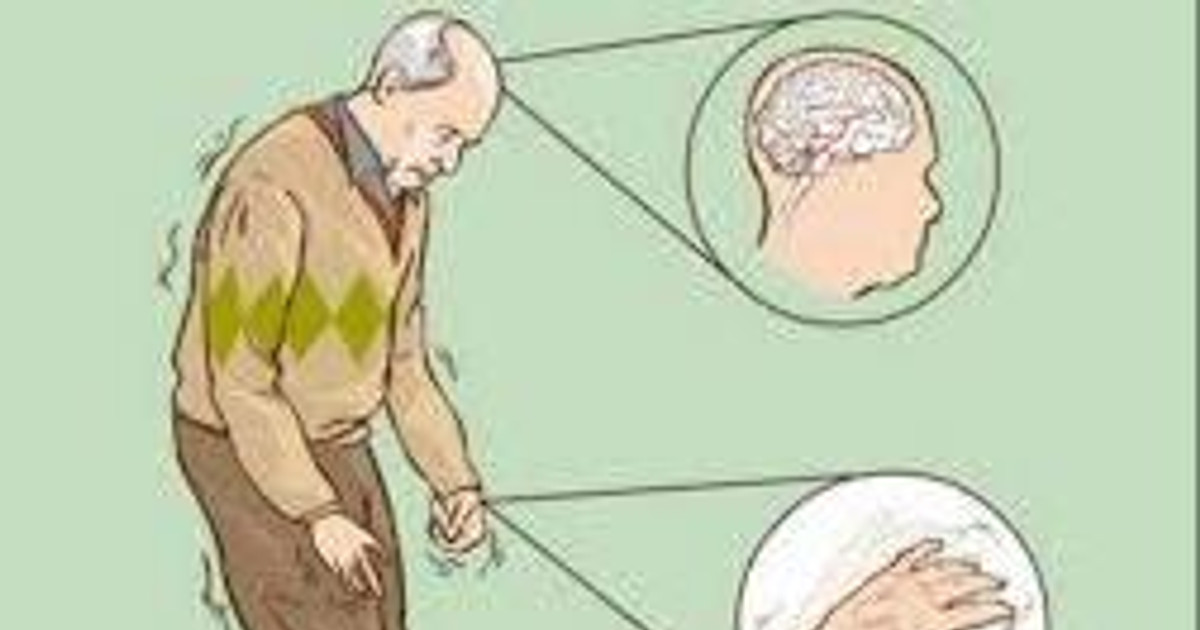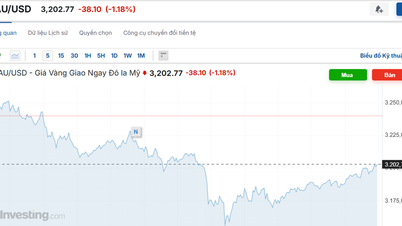
Doctor Tran Ngoc Tai is examining a Parkinson's patient - Photo: BVCC
Ms. LKO, 59 years old, living in Ho Chi Minh City, has been diagnosed and treated with Parkinson's disease with medication for the past 10 years.
Recently, the effectiveness of the drug treatment has been decreasing. Each dose only lasts about 2.5 hours. Furthermore, the patient also experiences agitation and hallucinations when using the drug.
Many advances in the treatment of Parkinson's disease
After consulting with the doctor, the patient agreed to undergo surgery to place deep brain stimulation electrodes. One month later, the patient's symptoms improved significantly, with no more agitation or hallucinations, the "off" phenomenon of the drug was significantly reduced, and the drug dosage was also reduced by 50% compared to before the surgery.
According to Dr. Tran Ngoc Tai - Deputy Head of Neurology Department, Head of Movement Disorders Unit, University of Medicine and Pharmacy Hospital - for early-stage Parkinson's patients, treatment with medication combined with exercise and physical therapy can help patients improve their daily activities and mobility.
In advanced Parkinson's disease, it is difficult to control with conventional drugs. Therefore, these patients can apply the advances in Parkinson's disease treatment in the world today.
Specifically, patients may consider invasive treatments such as deep brain stimulation surgery, apomorphine infusion, jejunal Levodopa pump, or subcutaneous Levodopa infusion.
For patients indicated for invasive treatment, 59% of patients continued to choose medical treatment, 19% of patients chose deep brain stimulation surgery, 9% chose Apomorphine infusion, and 13% chose Levodopa infusion.
MSc. Dr. Dang Thi Huyen Thuong, Department of Neurology, University of Medicine and Pharmacy Hospital, said that currently in Vietnam in general and University of Medicine and Pharmacy Hospital, Ho Chi Minh City in particular, deep brain stimulation surgery - one of the advances in Parkinson's disease treatment in the world - has been applied to treat Parkinson's patients.
Monitoring the results after deep brain stimulation surgery shows that patients have had positive changes in controlling symptoms of the disease such as tremors, shortness of breath, improved speed, accuracy of body movements and many mental problems.
Using electrodes implanted in the brain
Deep brain stimulation surgery is a functional neurosurgery procedure that uses electrodes implanted in the brain to electrically stimulate specific brain regions to reduce symptoms such as tremors, stiffness, and slow movements.
According to Dr. Tran Ngoc Tai, in the assessment of symptom improvement in 39 Parkinson's patients who underwent deep brain stimulation surgery in Vietnam, 69.23% of patients improved a lot, 25.64% of patients improved moderately, and 5.13% improved little.
Parkinson's patients can consider deep brain stimulation surgery when they meet the criteria according to rule number 5 including:
Patients aged 75 years or younger, with a disease duration of 5 years or more, taking Levodopa 5 times/day and motor complications occurring for 5 hours/day or more.
Before performing this method, the patient also needs to pass a clinical and psychological assessment given by the doctor.
After deep brain stimulation surgery, Parkinson's patients need to follow the medical check-up schedule prescribed by their doctor to continuously monitor and evaluate their post-operative condition, to ensure optimal effectiveness.
In addition, patients need to improve their diet and perform regular exercise, physical therapy or psychotherapy to improve flexibility and quality of life after surgery.
Source


![[Photo] Many young people patiently lined up under the hot sun to receive a special supplement from Nhan Dan Newspaper.](https://vphoto.vietnam.vn/thumb/1200x675/vietnam/resource/IMAGE/2025/5/18/6f19d322f9364f0ebb6fbfe9377842d3)
![[Photo] Ready for the top competitions of Vietnamese table tennis](https://vphoto.vietnam.vn/thumb/1200x675/vietnam/resource/IMAGE/2025/5/18/9c547c497c5a4ade8f98c8e7d44f5a41)


![[Photo] Party and State leaders attend the special art program "You are Ho Chi Minh"](https://vphoto.vietnam.vn/thumb/1200x675/vietnam/resource/IMAGE/2025/5/18/6895913f94fd4c51aa4564ab14c3f250)
![[Photo] Party and State leaders visit President Ho Chi Minh's Mausoleum](https://vphoto.vietnam.vn/thumb/1200x675/vietnam/resource/IMAGE/2025/5/19/d7e02f242af84752902b22a7208674ac)




























































































Comment (0)